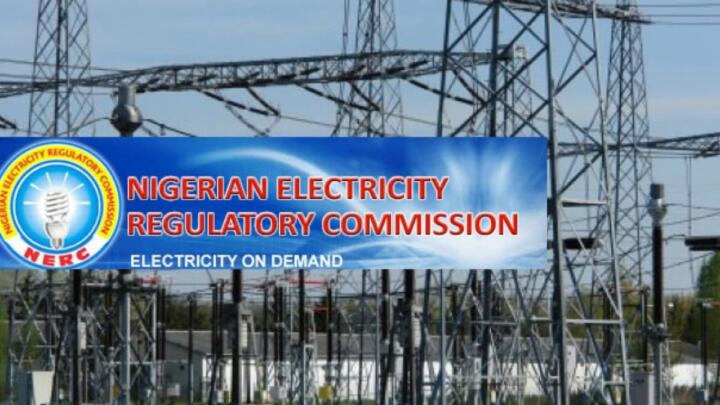Revenue generated by electricity distribution companies (DisCos) in Nigeria surged by 43 per cent to ₦1.5 trillion in the first nine months of 2025, compared to ₦1.04 trillion recorded in the same period of 2024, according to the latest industry data released by the Nigerian Electricity Regulatory Commission (NERC).
The sharp increase was attributed to improved billing efficiency, aggressive metering initiatives, and upward tariff adjustments that took effect earlier in the year. The report indicated that DisCos are now collecting a greater percentage of the energy they bill, reflecting gradual improvement in sectoral liquidity.

NERC’s data revealed that between January and September 2025, DisCos collectively billed consumers a total of ₦1.9 trillion, representing a 28% rise from ₦1.48 trillion during the same period in 2024. Out of this amount, ₦1.5 trillion was successfully collected, resulting in an overall collection efficiency of 79%, compared to 70% in the previous year.
The regulator stated that while the collection rate remains below international benchmarks, it demonstrates “a notable improvement in revenue assurance and consumer compliance” following sustained enforcement actions and public sensitisation on energy payments.
According to the commission, the higher revenue figures were largely driven by tariff adjustments approved under the Service-Based Tariff (SBT) regime, which allows DisCos to charge rates commensurate with service delivery levels. The average tariff across customer bands rose to ₦88 per kilowatt-hour, compared to ₦68/kWh in 2024.
The report also linked part of the growth to the increased deployment of prepaid meters, which has helped reduce estimated billing disputes and revenue leakages. Data from the NERC’s Meter Asset Provider (MAP) initiative showed that over 720,000 new meters were installed in 2025, raising the total number of metered customers to 6.2 million nationwide.
Speaking on the development, NERC Chairman Sanusi Garba said the improved collection is a reflection of the sector’s gradual recovery but warned that revenue gains must translate into better service delivery. “We are beginning to see positive financial performance from DisCos, but Nigerians expect consistent and reliable power supply. That remains our priority,” he said.
Garba also disclosed that the commission is monitoring DisCos’ compliance with the Minimum Remittance Obligation — a policy mandating them to remit a defined portion of their collections to the Nigerian Bulk Electricity Trading Plc (NBET) and the Market Operator (MO). He cautioned that any operator found defaulting could face regulatory sanctions or license review.
Despite the revenue surge, analysts argue that the sector remains constrained by high operational costs, technical losses, and inadequate power supply from the generation companies (GenCos). Industry expert Dr. Wale Oladipo, in an interview with Vanguard, noted that “while improved billing is commendable, DisCos are still grappling with low energy allocation and infrastructural decay that limit their performance.”
He added that without significant investments in network upgrades, the impact of revenue growth on service quality may remain minimal. “The gains will only be sustainable if there’s corresponding improvement in supply reliability and grid stability,” he said.
The NERC report further showed that aggregate technical, commercial, and collection (ATC&C) losses across all DisCos have dropped to 36%, down from 44% in 2024. The regulator said the reduction was achieved through “enhanced monitoring, digitalisation of payment channels, and crackdowns on electricity theft.”
In regional terms, Ikeja Electric, Eko Disco, and Abuja Disco accounted for nearly 50% of total collections, reflecting their concentration in urban and industrial hubs. Jos, Yola, and Kano DisCos recorded the weakest performance, owing to lower consumer density and frequent network interruptions.
A breakdown of the data showed that Ikeja Electric led the chart with ₦270 billion in collections, followed by Eko Disco with ₦235 billion and Abuja Disco with ₦210 billion. Jos and Yola DisCos, meanwhile, collected ₦42 billion and ₦36 billion respectively.
NERC also noted that electricity subsidies remain a major financial burden on the federal government. In the first nine months of 2025, subsidy payments stood at ₦570 billion, as the government continued to cushion the impact of cost-reflective tariffs on low-income consumers.
However, the commission reaffirmed plans to gradually phase out subsidies under its Power Sector Recovery Plan (PSRP), which seeks to ensure financial sustainability across the electricity value chain. “The government cannot continue to shoulder the subsidy indefinitely. The focus now is on ensuring efficiency and transparency in tariff implementation,” Garba said.
In response to the report, the Association of Nigerian Electricity Distributors (ANED) described the revenue increase as an encouraging sign of sector recovery, attributing it to ongoing reforms and customer engagement efforts. ANED’s Executive Director, Sunday Oduntan, said, “We have made progress in plugging leakages and improving billing accuracy. Our goal is to deliver better service and sustain financial discipline.”
Oduntan, however, urged government agencies and military formations — some of the sector’s biggest debtors — to settle their outstanding electricity bills, which he said exceed ₦100 billion. “We can’t sustain service improvements when public institutions owe billions,” he added.
Meanwhile, power consumers have expressed mixed reactions to the development. While some welcome the improved efficiency, others have complained about persistent poor supply despite rising tariffs. A Lagos resident, Mrs. Chidinma Opara, told The Punch that “we are paying more, yet the supply is still inconsistent. There should be fairness between what we pay and what we get.”
Energy economist Dr. David Ibeh emphasised that for the sector to achieve stability, the Transmission Company of Nigeria (TCN) must also upgrade its infrastructure to handle increased energy output. “Revenue growth is good, but it must be matched by grid reliability and investment in generation capacity,” he stated.
NERC concluded that sustaining the financial progress of DisCos will require continuous regulatory oversight, investment in smart technology, and enforcement of accountability measures across all operators in the power sector.
Support InfoStride News' Credible Journalism: Only credible journalism can guarantee a fair, accountable and transparent society, including democracy and government. It involves a lot of efforts and money. We need your support. Click here to Donate
